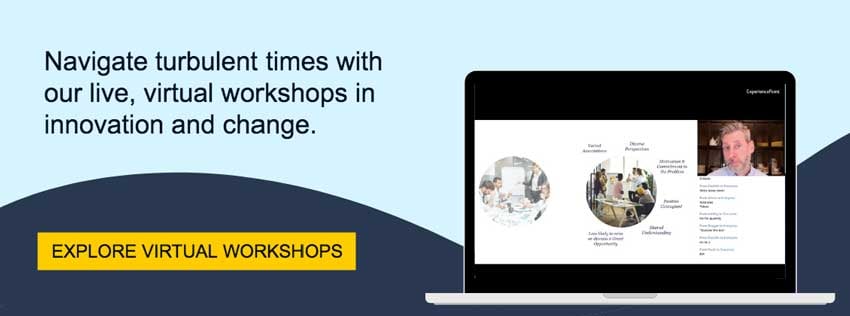As the holiday season approaches, and the calendar becomes crammed with end-of-year tasks, leaders may be tempted to fall back on their annual office traditions. Sending out a company-wide e-card and calling it a day, might be one.
Yet it goes without saying that this has been anything but a typical year — one that would have challenged every member of a team both personally and professionally. As such, it may be in the best interest of leaders at any level to take pause and rethink their approach in order to set the stage for a brighter year to come.
How does he or she begin to do so? Remember that human-centered leaders approach their employees as they would their customers. With that in mind, leaders might consider making a list (and checking it twice) of all the ways in which they would seek to inspire, engage with and incentivize their customer-base as the end-of-year approaches.
Once that list is complete, they might find innovative ways of activating each within their own workforce — keeping in mind that their team members will remember how they endeavored to do so long after the decorations have come down.
Here are a few examples:
Empathize: Human-centered design is powered by empathy — it recognizes that the sincere and thorough understanding of one’s customers and their needs results in products and services that consistently delight. In this same way, the onus is on leaders to gain a sincere and thorough understanding of their people. Doing so — particularly after this challenging year — might mean booking time to speak to employees individually before the new year arrives. In these open-ended discussions, there would be no greater objective than to let the team member speak: to listen to any of their pain points, to gain a greater understanding of how they’re coping right now and to learn what they foresee in the year to come. As each conversation comes to an end, the leader might consider repeating back the main points presented by the employee so that they recognize they were listened to. To place a final bow on the human-centered box, leaders should commit to using the information they’ve gained to inform new and internal initiatives and processes in 2021.
Incentivize: As the holiday season approaches, it is common practice for businesses to offer incentives to their customers in the form of sales and deals — ‘tis the season of giving after all! Yet in the same way, it is important that human-centered leaders endeavor to rally and reward their teams for their hard work, especially after the year that they have faced. An empathetic leader will think creatively about what might be best to boost the morale of their people, however one such approach might be to offer an extra day or two of paid holiday time. The distances created by the events of the year will have invariably affected their ability to spend time with friends and family — and external stressors will have made it more difficult to focus on themselves. Allowing them some extra days to decompress and to reconnect with loved ones will work wonders when they return to work in the new year.
Humanize: Staying relevant to a customer-base requires transparency and authenticity — companies must make moves to stay connected with their customer-based and to make it clear that they are sincerely interested in finding direct solutions for the problems their customers are facing. In that same way, when leaders strive to make their employees feel both informed and educated, they will make decisions that benefit the business and the project — not just themselves. With this in mind, leaders should consider a candid and transparent approach in their communications this holiday season. If a company-wide address is the norm, such as a holiday letter or speech, a leader should not hesitate to be just as candid about the challenges that have presented themselves this year as they are about the triumphs. An acknowledgment of this year’s difficult realities, a thank-you for their many sacrifices and a sincere message of hope for the future, will go far in reminding workers that they are supported, valued and cared for.
An Extra Tip from Our Leadership:
“As a manager, your most important ‘customers’ are the members of your team. Yet how can any great leader hope to take care of their people without also taking care of themselves? As you might do with a customer, or a member of your team, take time to recognize your own pain points and needs and to brainstorm ways to exercise self-care this holiday season. Creating an empowered environment where your team is most likely to succeed depends on an empowered leader: so charge up this holiday season with plenty of rest, laughter and time spent with loved ones. A new year of opportunity is on the horizon.”
- - James Chisholm and Greg Warman, Co-Founders of ExperiencePoint
